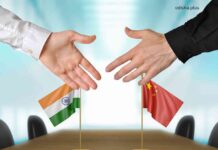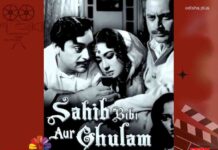Odisha Through the Eyes of a European – 3
by Ute Eisinger

We reached our destination in the deep sleepy night. So stepping out to the main street of Jashipur the next morning was like opening my eyes to India.
The main street, that meant a permanent passing by of motor bikes or scooters carrying two or more passengers. As two is rare in Europe, where people prefer the car for transporting passengers or materials, two were rare here as well. The majority of vehicles would carry more than that. Mostly, there would sit the driver with women and kids, up to five people. Besides, in European countries more than two would not fit on bike back. Their well-fed bodies would not let them.

The impression that people here seemed much smaller and slimmer than we are, made me suddenly feel like a big fat giant. I did not only mean it clumsily, but it came to my mind as a faint idea of historical guilt. I understood the responsibility we bear for our forefathers, who had eaten the rice these people’s forefathers earned but had to give away to the British Rulers. Since I am raised a Roman Catholic, I felt guilty. Though my forefathers in rural Austria had had to give away much of their crop to church and emperor, now we are too fat to share a bike seat with the whole family. (Later I learned there are fat Indian middle-class people as well, and we made a lot of jokes about the gentlemen carrying their bellies as proud as pregnant women.)
The purpose of the programme I took part in was to make international artists familiar to tribal life in India. So it turned out to be rather an ethnographical field trip than an artist residency, with a schedule of excursions into the countryside.

My wish had been to see a tiger in nearby Simlilipal national park, but disappointingly the excursion into wildlife was postponed and postponed again, and in the end of the trip it leaked out that authorities could not guarantee for our safety, since eight years before tourists had been kidnapped in this area.
For a European, it was uncommon that no one would explain the situation to us, so I had to dig into the internet to get a general idea about the problems of tribal policy, Naxalite activities and illegal mining, etc. In the situation given in Jashipur I was missing the discussion about politics as we Europeans have been fond of doing, as if it would change the world to discuss it.
Starting from the first day, we used to be driven to villages to be introduced to tribal way of living. Our guides were showing us the benefits of the programme the state had put upon the tribal people.

The first village was a very tidy place, much more comfortable, clean and merrily inhabited, as it seemed to me, than the town streets with garbage dumps and Styrofoam fires between concrete ruins of buildings. The Santhal people of the village gave us a welcome ceremony and danced to entertain us. To have my feet washed by someone kneeling under me is a situation that made me, as a European, feel very uncomfortable. For at least two generations, two individuals in any given situation look each other straight into their eyes at same level. We treat each other equal. Even folks cleaning our flats we would invite them to our table to have coffee with us.

I am aware that the tribal experience was a special programme made for us, but somehow I got the impression that these villagers were warm-hearted and curious by nature, and not because they get paid for the service. (In Austria, tourism is a major part ot the economy, so a lot of friendly smiling comes with the purpose to make tourists feel comfortable and consume a lot, an attitude I do not like.)

After the programme, while the Americans went with some villagers tasting Handia, an intoxicating indigenous brew, I went aside to see the margins of the village. In the hour before sunset some women were still busy on the fields near the river, and a kind of traffic was going on along the river bank of these tribal women.
The evening was calm, and I understood that the basic values of life in a tribal community lack are not easy to get. Going aside, on your own, to wash your clothes at the river means the only possible privacy within a hard life in the busy crowd of your village.
[The author is a Vienna based Poet and Educationist]



























